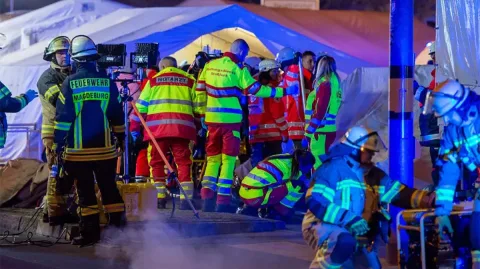Al Shabaab militants have begun pulling out of at least two rebel enclaves in central Somalia…
 Al Shabaab militants have begun pulling out of at least two rebel enclaves in central Somalia after neighbouring Ethiopia sent hundreds of troops across the border, residents said on Monday.
Al Shabaab militants have begun pulling out of at least two rebel enclaves in central Somalia after neighbouring Ethiopia sent hundreds of troops across the border, residents said on Monday.
Addis Ababa denied on Sunday that its forces had entered yet Somalia, but local residents and elders said scores of Ethiopian vehicles ferrying troops and weapons moved at least 80 km (50 miles) into the Horn of Africa country over the weekend.
Local people in Beledweyne and Ceelbuur, both close to the Ethiopian frontier and under insurgent control, said the Islamist fighters had abandoned checkpoints where they used to extort taxes and left their battle stations.
“I saw a convoy of al Shabaab troops vacating the front lines,” said a resident of Ceelbuur, who identified himself only as Ahmed. “I don’t know where (the fighters) are headed, but they aren’t in the town any longer.”
An Ethiopian foreign ministry spokesman said a decision on whether to join the assault against al Shabaab in some form would be taken on Friday at a meeting of east African heads of state.
However, the residents said the Ethiopian military had already arrived, five weeks after Kenya launched an operation to crush the al Qaeda-linked militants.
The disappearance of al Shabaab fighters from zones close to where Ethiopian troops were stationed does not necessarily signify an all-out retreat.
MELTING AWAY?
Many rebels appeared to melt away into the local population when Kenya sent hundreds of ground troops into southern Somalia last month and began an early wave of air strikes against the militants it blames for a wave of kidnappings on its soil.
Since then they appear to have re-grouped, engaging Kenyan troops in hit-and-run attacks that, together with heavy rains, have hampered the Kenyan advance on rebel bases.
The last time Ethiopia entered Somalia was in December, 2006, with tacit U.S. backing and at the invitation of a Somali government that had lost control of large swathes of the country, including the capital, to another Islamist group.
They left in early 2009 after ousting that group, winning backing in some corners of the country, but inspiring considerable support among others for its offshoot, al Shabaab.
In Ceelbuur, the Ethiopians are widely seen as liberators. “Al Shabaab call for holy war, but they start running when they hear Ethiopia,” resident Ahmed said.
“Now we don’t see a lot of al Shabaab fighters in the town. I am sure they are preparing to run away when the Ethiopian troops close in on the town,” said Faduma Hassan, a resident in Beledweyne, about 30 km from the border.
Al Shabaab, which is fighting to impose a harsh interpretation of sharia law on the nation, welcomed on Sunday Ethiopia’s apparent incursion as a sign that the Kenyan military campaign was failing to dismantle the rebel network.
In Baidoa, about 250 km northwest of the capital Mogadishu, al Shabaab issued a rallying cry for holy war.
“Al Shabaab took to the streets with loud speakers and urged us to prepare for Jihad,” said Ali, a Baidoa resident. “They have been warning us not to spy for the Ethiopians or for the government.” (Additional reporting by Abdi Sheikh; editing by Richard Lough and David Stamp).
Source: Reuters





